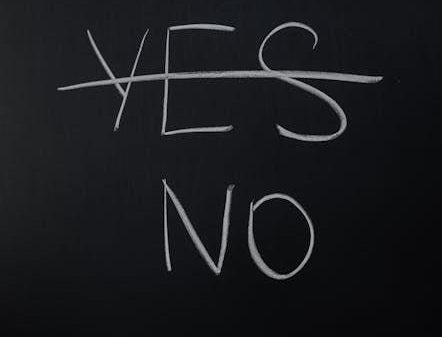In the intricate dance of human relationships, rejection is an inevitable step that can leave us feeling disoriented and uncertain about our future interactions. Whether it’s a job opportunity that slipped through our fingers, a friendship that never blossomed, or a romantic interest that didn’t reciprocate, the sting of rejection often prompts us to reconsider our connections with those who turned us away. But what happens when paths cross again? Should we steer clear of those who once rejected us, or is there room for new beginnings? This article delves into the nuanced world of navigating relationships post-rejection, exploring the potential benefits and pitfalls of re-engaging with those who once closed the door on us. Through a balanced examination of social dynamics, personal growth, and emotional resilience, we aim to shed light on whether avoiding these individuals is a prudent choice or a missed opportunity for transformation.
Navigating the Emotional Terrain of Rejection
Encountering rejection can stir a myriad of emotions, and the decision of whether to maintain distance from those who have turned you away is not always clear-cut. While the initial instinct may be to shield oneself from further hurt, it’s important to delve deeper into the emotional landscape of rejection. This reflection can guide you in making a decision that aligns with your personal growth and emotional well-being.
- Self-Reflection: Consider what the rejection taught you about your own desires and boundaries. Understanding your feelings can help you determine if distancing yourself is a protective measure or a missed opportunity for growth.
- Context Matters: Evaluate the context in which the rejection occurred. Was it a professional setback, a personal relationship, or a social circle exclusion? Each scenario may require a different approach in managing future interactions.
- Emotional Impact: Acknowledge the emotional impact the rejection had on you. It’s crucial to assess whether continued contact would be a source of discomfort or an opportunity for closure.
Ultimately, the decision to avoid or re-engage with those who have rejected you should be based on a balance of emotional intelligence and personal boundaries. By navigating this emotional terrain thoughtfully, you can transform rejection into a catalyst for resilience and self-discovery.

Understanding the Dynamics of Social Interactions Post-Rejection
Navigating social interactions after facing rejection can be an intricate dance of emotions and self-preservation. When confronted with someone who has turned you down, it’s crucial to recognize the underlying dynamics that may come into play. Rejection often evokes a natural human response to protect oneself, which can manifest as avoidance. However, it’s essential to evaluate whether this instinctual reaction is beneficial in the long run. Consider these factors:
- Emotional Impact: Understand your emotional triggers. If their presence causes significant distress, maintaining distance might be necessary to heal.
- Social Context: Evaluate the social environment. Are you part of the same community or professional circle? Total avoidance may not always be feasible.
- Personal Growth: Reflect on personal growth opportunities. Facing discomfort can sometimes lead to resilience and a deeper understanding of oneself.
Ultimately, it’s about finding a balance that respects your emotional boundaries while also considering the potential for personal development. The choice to engage or distance oneself should align with your comfort level and the context of the interaction.

Building Resilience and Self-Worth After Being Rejected
- Reflect on the Experience: It’s essential to take a moment and understand the reasons behind the rejection. Was it due to circumstances beyond anyone’s control, or were there areas for personal improvement? Understanding the ‘why’ can provide valuable insights and help in moving forward.
- Embrace Self-Compassion: Treat yourself with kindness during this period. Rejection does not define your worth. Practicing self-care and reminding yourself of your strengths can help build resilience.
- Seek Support: Surround yourself with supportive individuals who value and respect you. These connections can provide comfort and encouragement, reinforcing your self-worth.
In the face of rejection, it’s natural to question your value and abilities. However, building resilience involves acknowledging your emotions without letting them dictate your self-esteem. This process can transform rejection into a powerful tool for personal growth, fostering a sense of self-worth that remains unshaken by external opinions. By focusing on positive affirmations and constructive feedback, you can emerge stronger and more self-assured, ready to face future challenges with confidence.

Practical Strategies for Future Interactions with Those Who Rejected You
Navigating future interactions with those who have rejected you can be a delicate task, but it doesn’t have to be daunting. Here are some practical strategies to consider when engaging with these individuals:
- Embrace Professionalism: Maintain a courteous and respectful demeanor in all interactions. This approach not only preserves your dignity but also demonstrates maturity, potentially altering their perception of you.
- Focus on Common Interests: If you find yourself in a situation where interaction is inevitable, steer conversations towards shared interests or mutual goals. This can help to create a more comfortable and less confrontational environment.
- Set Clear Boundaries: It’s important to establish what you’re comfortable with in terms of interaction. Be polite but firm about your boundaries, ensuring that your emotional well-being remains a priority.
- Reflect and Learn: Use the experience as an opportunity for growth. Consider what insights you can gain from the rejection and how you can apply them to improve future interactions.
Remember, the key is to handle these situations with grace and poise, ensuring that your actions reflect your personal growth and resilience.








